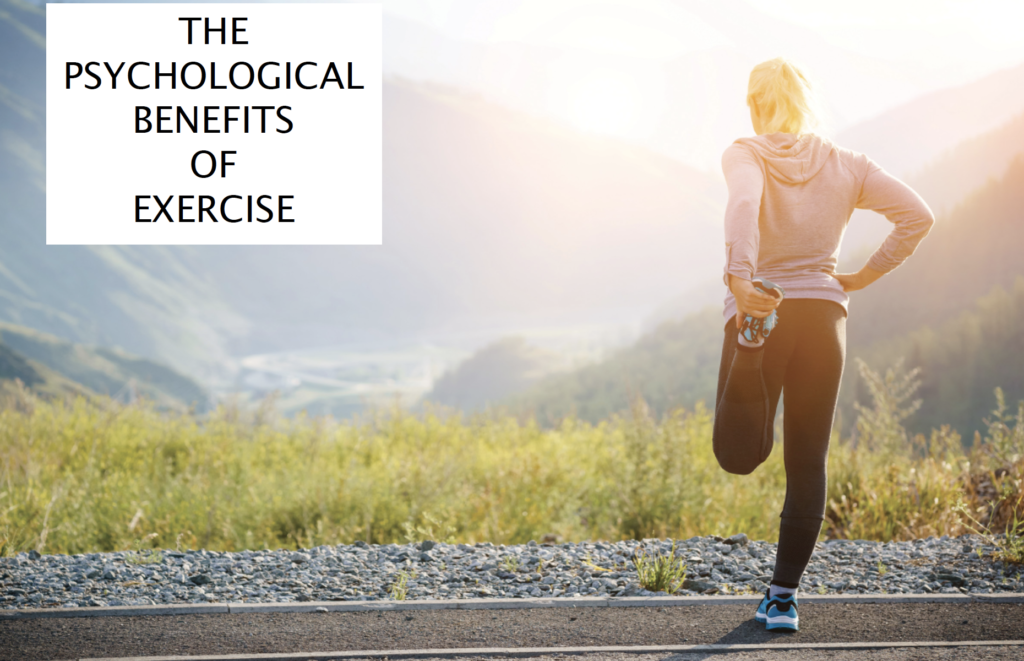The Psychological Benefits of Exercise
Kaycee McIntosh, PA-C at Kalispell OB/GYN
Have you ever felt a sense of total and complete freedom? This winter, I discovered something that created energy, motivation, inspiration, and joy in a place I didn’t expect. I have three boys, so there is little time for self-care and exercise.
We also have a very energetic black lab. We live on a mountainside, so in winter, covered in snow and ice, walking the dog becomes more challenging because many of my routes are snow-covered. Something finally occurred to me. I have skis with skins, meaning that I can traverse up an incline with my skis on. I thought, why can’t I ski with the dog instead of walking the dog? I started skiing regularly, which led to a winter of walking bliss. These outings helped me experience so many good emotions and became my escape.
Most of my time is not my own. At home, I always do things for my kids, and exercise became a way to slip into my own world, where I could daydream without constant interruption.
It made me think about how we often perceive exercise as another thing to cross off a to-do list. No wonder so many people are resistant to it. Could we rename the way we think about exercise? We all know we “should” exercise, just like we “should” be eating enough fruits and vegetables for our physical health. I want to share some reasons why exercising can improve your life in ways that exceed your expectations while reducing stress, anxiety, and depression. I hope I inspire you to grab your walking shoes and get outside!
Body image is a person’s subjective or mental image of their body. Unsurprisingly, we are all walking around thinking about our body image and comparing ourselves to others, which has expanded with the increasing ease of accessing social media and the internet.
Some startling statistics about women and body image in the United States.
• One study found that by age 13, 53% of girls are unhappy with their bodies; this increases to 78% by age 17.
• A survey by Fredrick and colleagues found that 20-40% of adult women are dissatisfied with their bodies.
• Individuals with negative body image are at higher risk of developing an eating disorder.
• Negative body image increases the risk of depression, low self-esteem, loneliness and weight loss fixation.
• Research has shown that 25% of self-esteem is rooted in our perceptions of our bodies.
Multiple studies have found that exercise has a positive, statistically significant effect on body image. A study led by Kathleen Martin Ginis, a UBC Okanagan’s School of Health and Exercise Sciences professor, with grad student Lauren Salci, researched the potential of physical activity in improving body image in 2017. They wanted to evaluate a 30-minute exercise and its impact on women’s body self-perception. They studied 58 university students who typically exercised less than one hour of moderate exercise, then interviewed them before and after working out. They found immediate body perception improvements that lasted at least 20 minutes following a period of activity. The factors most influenced in this study were the perception of strength and perceptions of body fat.
Depression and anxiety are very prevalent conditions in the US. Blue Cross Blue Shield reported that nine million commercially insured Americans had been diagnosed with depression, and two million are not seeking treatment.
Exercise reduces symptoms of anxiety and depression. Individuals with mental health disorders are also at elevated risk of secondary health problems associated with a sedentary lifestyle, including diabetes, high cholesterol, high blood pressure, and cardiovascular disease. Aerobics exercises, including jogging, cycling, swimming, gardening, and dancing, have been evaluated and noted to reduce anxiety and depression by improving mood.
Mood improvements are caused by increased blood flow to the brain, which reduces our physiological reactions to stress and encourages cognitive function. It has also been hypothesized that exercise improves mood because it distracts, promotes social interaction, and enhances self-confidence.
Another incredible thing I found was a study completed by Harvard psychologist Ellen Langer. She created a survey that uniquely reevaluates the connection between our mind and body. Given the number of hours of physical activity they complete daily, she was interested in studying hotel maids. She composed a survey of hotel maids that concluded that 67 percent of them reported that they did not exercise.
Langer thought that was bizarre since they were exercising all day. She also noted that the women did not appear to benefit physically from all that work. Langer and her team measured these women’s blood pressure (bp), body fat, and waist-to-hip ratios. She noted that these values aligned with their perception of exercise rather than the amount of exercise they were getting. After splitting the group of 84 maids, researchers educated half that they met the surgeon general’s exercise requirements. One month later, the team returned and repeated the physical measures of those who had had physical activity education and found a decrease in the women’s bp, waist-to-hip ratio, and weight. The women had not changed their activity level, and Langer concluded that their thoughts
about their activity level impacted their bodies. Langer believes that the changes in the hotel maid’s bodies were a direct result of the shift in the mindset of the women studied. This research is a beautiful example of the placebo effect. Langer says that telling your body you are exercising may lead your body to respond as if it is. There is some skepticism regarding the findings of this study; however, other studies indicate that the way we perceive an experience can directly affect the functions of our bodies.
Ultimately, consider all the challenging physical things you do as exercise to increase any potential mental and physical health benefits. You may get more results from vacuuming than just spotless floors!
An article from the National Library of Medicine summarizes the benefits of exercise for mental health by listing the following benefits:
National Library of Medicine
1. Improved Sleep
2. Increased interest in sex
3. Better endurance
4. Stress relief
5. Improvement in mood
6. Increased energy and stamina
7. Reduced tiredness that can increase mental alertness
We all need to get moving to reap any of the benefits of exercise. We can enhance our mental (and physical) health benefits with 30 minutes of moderate-intensity activity thrice weekly, such as a brisk walk. Also, the action does not need to be continuous; three 10-minute sessions are equivalent to a thirty-minute session.
Here are some tips to help you get moving.
1. Set the bar low. Refrain from judging yourself if it has been a while since you have exercised. Start by walking a few minutes per day or ten minutes three days per week.
2. Remember, dancing counts as exercise. Put on your favorite song and dance in the living room for ten minutes daily. Or even one or two songs if you have limited time.
3. Plan a fitness meeting with a friend regularly. The interaction with a friend might inspire you to get moving and help you look forward to exercise. It is helpful to have someone who can remind you about your goals and support you through an accountability partner, aka accountabilabuddy.
4. Journal how you feel after exercise regarding your mood Improvement and body confidence so your progress is more noticeable.
5. Change your mindset about exercise. Instead of thinking that exercise is something you “have to do,” shift to thinking that exercise is something you get to do. Exercise can be a release, an escape, a time to daydream, or a step away from everything that is worrisome and stressful in your life.
6. Give yourself credit for exercising whenever you increase your heart rate with physical activity.
In conclusion, we usually consider the physical health benefits of exercise while disregarding some mental health benefits. Life is busy. Many people raise children, work full-time, or care for other family members. Physical activity must be a priority because it enables us to manage our stress and improves how we perceive our body image and capabilities.
Remember, you can’t pour from an empty cup.
This article appears in 406 Woman magazine.

